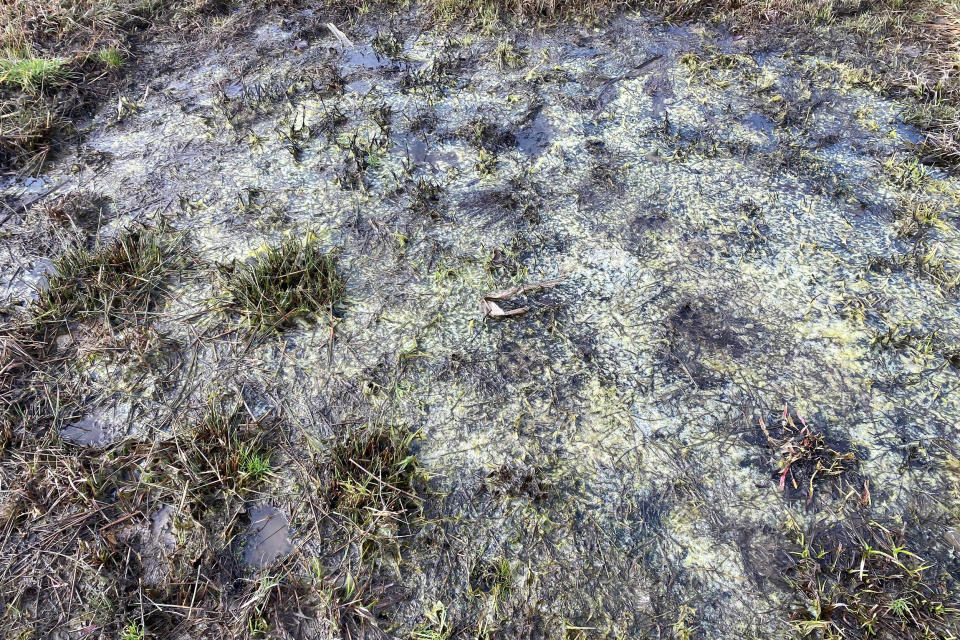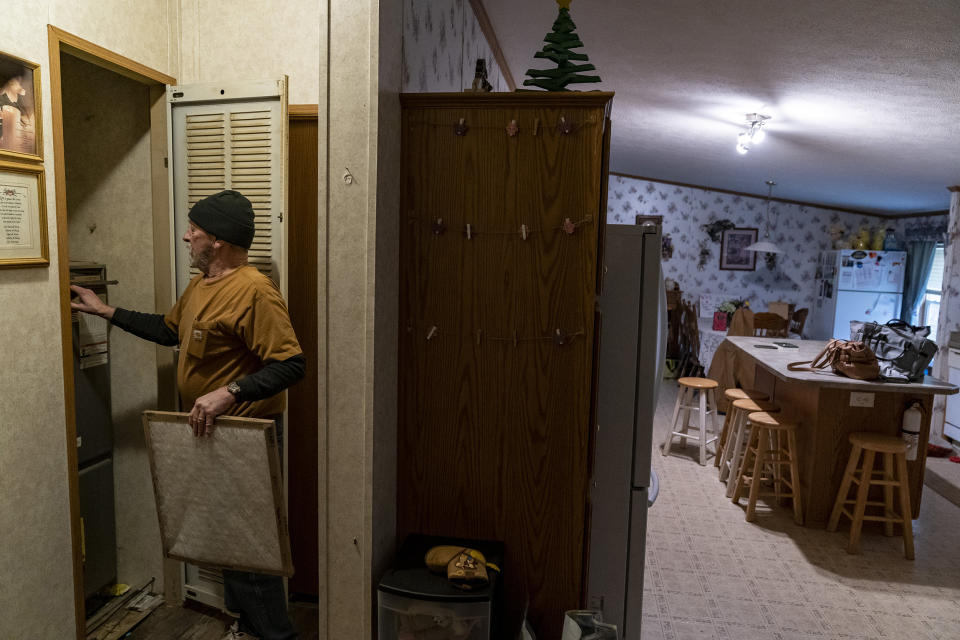Pennsylvania residents near Ohio chemical spill say they're left out of recovery efforts
Western Pennsylvania residents living near the Ohio border say they have been left out of recovery efforts following the Feb. 3 Norfolk Southern train derailment in neighboring East Palestine, Ohio.
The crash led to evacuations and fears of air, water and soil contamination, especially after one chemical was deliberately released and burned to prevent an explosion.
On Tuesday, the administrator of the federal Environmental Protection Agency, Michael Regan, returned to East Palestine to visit the spill site and told NBC News the agency is "here to stay and we are not leaving until the job is done."
But Pennsylvania residents say they are frustrated by a lack of information about the lasting risks from the disaster and demand more transparency from state and federal leaders, who they say are focused too narrowly on recovery efforts within a 2-mile radius surrounding the derailment, a designation set by the EPA.

“Nobody is doing anything to help us,” said Patty Barber, who lives in Darlington, Pennsylvania, less than one mile from the spill site. “Pennsylvania is being left out.”
State officials have said they sympathize with residents' concerns and are coordinating response efforts across multiple agencies.
Last week, Gov. Josh Shapiro met with residents in Darlington who received water testing through the state's Department of Environmental Protection.
The department has also been working closely with the Pennsylvania Emergency Management Agency and the state departments of health to monitor developments in East Palestine.
On Monday, Shapiro announced the opening of a health clinic in Beaver and Lawrence counties that closely mirrors one created for East Palestine residents. The state departments of environmental protection and agriculture will be on hand at the clinic to help community members sign up for free water testing and to provide guidance on food and animal safety, according to the governor’s office.
As of Monday, the EPA said, East Palestine’s municipal water was safe to drink. Indoor air quality screenings from more than 550 homes did not exceed safety standards, and air quality in the community remains “normal,” the EPA said.
But residents who live outside the immediate area say crucial information is hard to come by even as people complain of various ailments, including bronchitis, headaches and other symptoms associated with chemical exposure.
Many thousands of fish have died, and community members have talked about finding sick pets and wildlife.

"Not to take anything away from the folks in East Palestine — they got the worst of it — but that cloud did not stay there," said Sherry Strozza, who lives about 3 miles away, in Lawrence County, Pennsylvania.
Strozza said she has experienced headaches since the chemical spill and worries about the safety of her dog and three horses. A yellow-white residue now covers parts of her soil, which Strozza has not been able to test despite repeated calls to state and federal environmental agencies and local testing companies.

"I called the DEP. I called the EPA. They keep telling me I'm outside of the range of the testing area," she said. "I would feel more comfortable if I could get my soil tested, but I don't know how."
A spokesman for the Pennsylvania Department of Environmental Protection said the agency is testing private wells within a 2-mile radius of the derailment site and developing its soil sampling plan. It intends to “aggressively pursue recovery of those costs from Norfolk Southern,” department spokesman Jamar Thrasher said in a statement.
He encouraged residents like Strozza, who live outside the 2-mile boundary, to contact the department directly to request testing.
Officials began private well testing on Feb. 21, and public suppliers were tested a week earlier. The department said it has not detected groundwater contamination to date.
As of Wednesday, the state has completed collecting samples from 13 of the 16 known residential wells within a 1-mile radius of the derailment site and is working to schedule more testing in the coming days.
Results from the first round of testing are expected this week.
“If we do find any contamination related to the train derailment, we will respond appropriately to protect public health and remediate the contamination,” Thrasher said. “We will stay in communities like Beaver County as long as it takes to assure Pennsylvanians their air, water, and environment are safe.”

Leah Renee Markovitz, who lives 25 miles from East Palestine in Clinton, Pennsylvania, said her biggest concern is the health of her children, who have experienced cold-like symptoms in recent weeks, and contaminated water leaching into her well.
"Anywhere that the wind was blowing that day [of the derailment], all those people are an afterthought," she said.
Many of her concerns were underscored Feb. 17 during a five-hour Pennsylvania state Senate committee hearing. Eight community members shared their worries and frustrations, with most saying they felt like Pennsylvania had been abandoned.

Lawrence County resident Sheila Stiegler, who lives 16 miles from where the train derailed, told lawmakers she is angry and heartbroken by what she calls a slow response from the state. She described her family as modern-day homesteaders who grow their own food and buy what they can’t grow from local farmers. She now worries about the longterm impacts of the derailment to her food and her family.
“We faced uncertainty, and felt abandoned and on our own,” she said.
In Darlington, Barber said she still doesn't know if her house is safe. She and her family didn't see birds fly over their rural home for about a week after the train derailment, and the deer that normally drink from her ponds still haven't returned, she said. The creek where her family likes to swim is filled with dead fish.
“Is my house safe? I don’t know,” she said. “This is where I grew up. Where else would I go?”
Both Strozza and Barber would like to have their properties tested for toxic chemicals, but neither have been able to secure appointments through local companies or state agencies. Strozza said she would feel more comfortable if her home could be cleaned "top to bottom," and Barber would like her well to be tested periodically in the coming months and even years.
“I live less than a mile from ground zero. My brother is a 7-minute drive,” she said. “Our whole way of life has been compromised, and nobody seems to understand that.”

